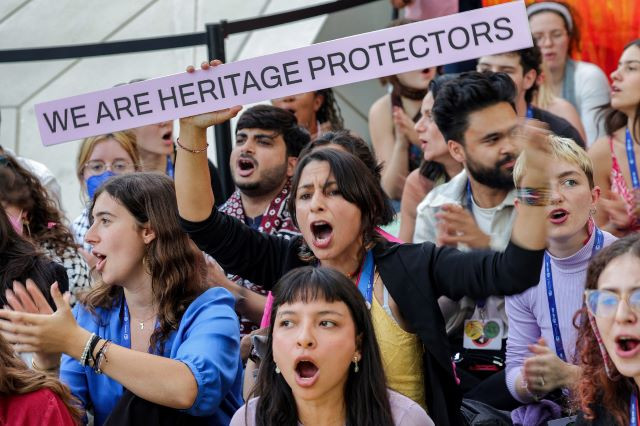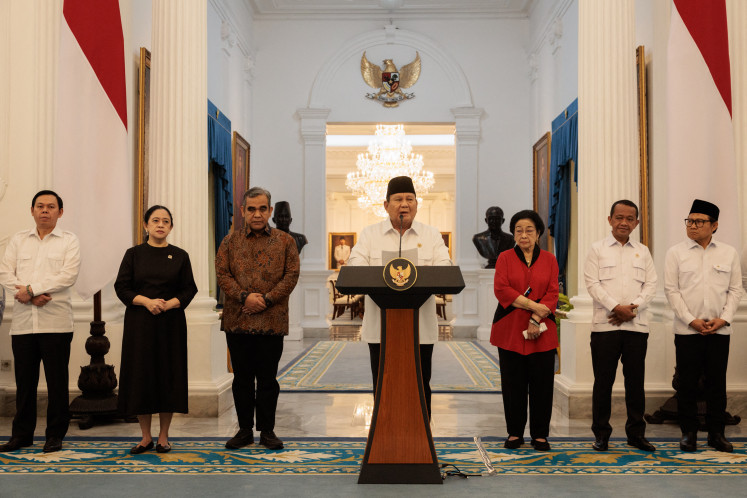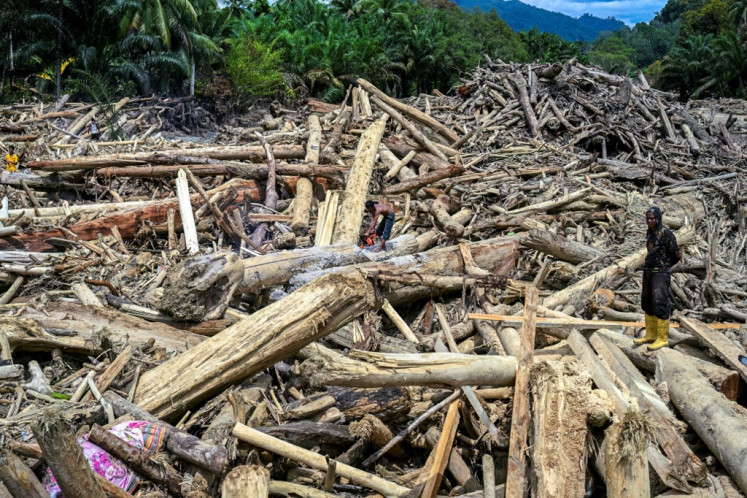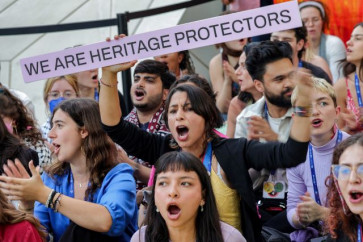Popular Reads
Top Results
Can't find what you're looking for?
View all search resultsPopular Reads
Top Results
Can't find what you're looking for?
View all search resultsGender-responsive just transition and climate action partnership matters
Recent findings demonstrate that women who rely on natural resources for sustenance, which often represent their primary income stream, are disproportionately susceptible to climatic uncertainties.
Change text size
Gift Premium Articles
to Anyone
I
n a historic move, the United Nations Climate Change Conference (COP28) last month finally made inclusivity the center of discussions related to climate change. For the first time inclusivity has been recognized as a critical enabler to ensure substantial and transformative advancement in tackling the climate agenda within the right time frame; triple renewable energy and double energy efficiency globally by 2030.
Sherry Arnstein's Citizen Participation Model (1969) suggests that the highest inclusivity ladder is when participation transitions into delegated power and citizen control. This means citizens, whether through delegated power structures or citizen control scenarios where community organizations govern programs, hold pivotal cards in shaping policies and managing institutions. Inclusivity fosters true accountability and negotiated decision-making, ensuring that public institutions willingly relinquish some control, decision-making authority or funding to citizens.
COP28 strove to achieve inclusivity by convening diverse groups at the forefront of climate change, including women, youth, indigenous peoples and multilevel leaders. This approach has yielded various initiatives that prioritize their interests. However, it is imperative to ensure that these groups not only participate but also meaningfully and substantively engage in COP28 and its aftermath.
One of the key initiatives under the Inclusivity pillar is the COP28 Gender-Responsive Just Transitions and Climate Action Partnership, with the aim of promoting women's economic empowerment and achieving a fair gender-responsive transition. This tackles women’s financial challenges and the gender data gap through financial support, education and training that enable women to fully participate in the clean energy sector.
With the endorsement of 68 countries, this partnership has led to the establishment of the first-ever Gender Equality Day on Dec. 4, 2023. While ASEAN member states, including Indonesia, have not officially signed the pledge, it is essential to recognize that the collective effort toward this shared ambition is huge.
Gender emerges as a salient factor shaping the vulnerability to and coping mechanisms for climate-induced hazards. Recent findings demonstrate that women who rely on natural resources for sustenance, which often represent their primary income stream, are disproportionately susceptible to climatic uncertainties. In contrast, men exhibit a proclivity toward income source diversification, thereby augmenting their resilience to environmental perturbations.
According to the UN Development Program (UNDP), women also perform over 75 percent of unpaid care work worldwide, 3.2 times more than men. During climate-induced calamities, this percentage increases as women take on additional responsibilities to assist their households and communities in recovering and rebuilding.



















